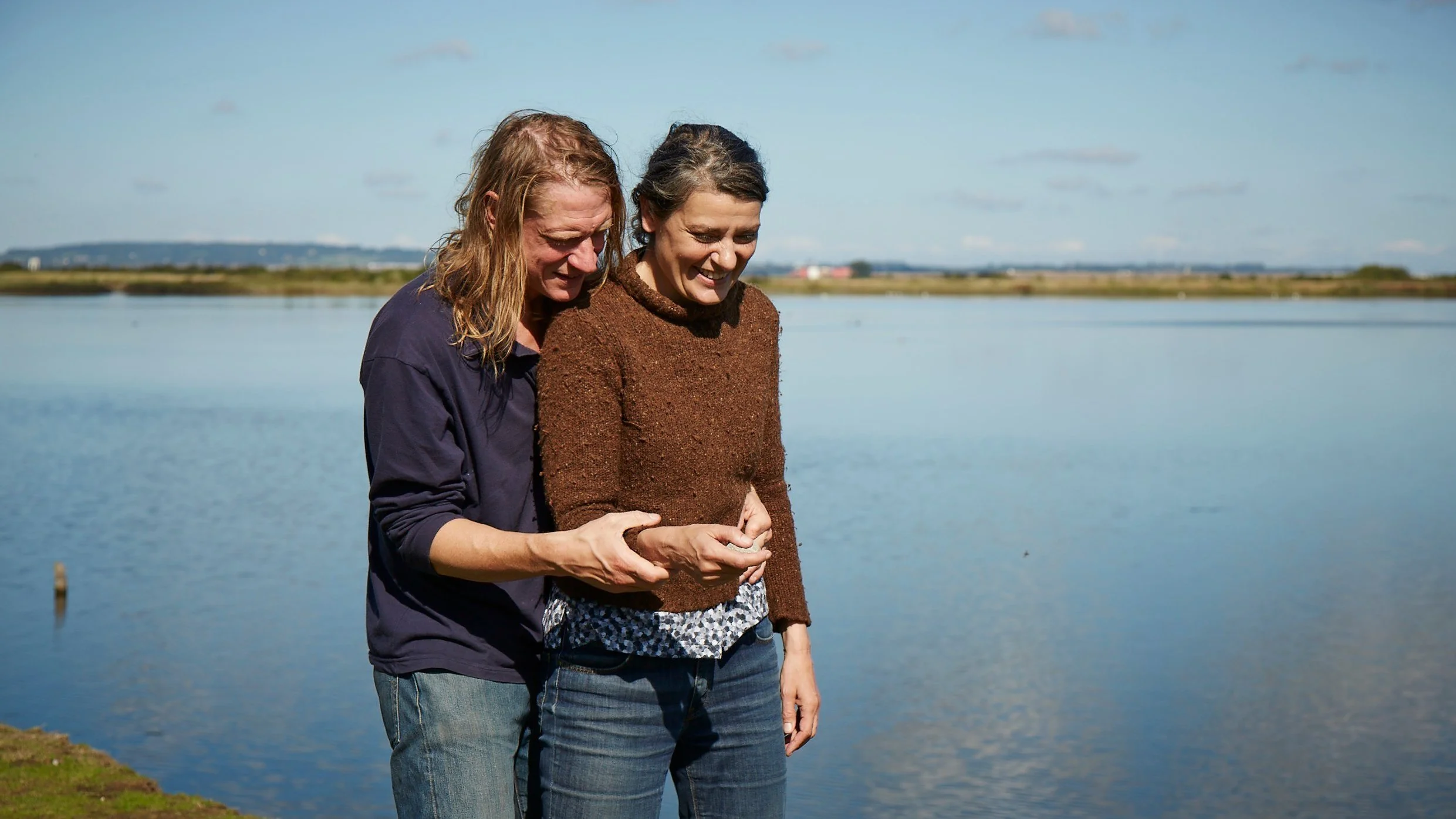Second Spring
A new British talent emerges in a tale centred on a woman facing a crisis in middle age.
When it comes to brilliantly talented new filmmakers Britain can put up several impressive names. Some of them hit the jackpot at first go and among those I would include Richard Billingham with his masterly Ray & Liz (2018) and, in a more specialised category, Mark Jenkin for the memorable Bait (2019). Other emerging talents show evidence of real cinematic flair betokening immense promise in a work which makes one sit up and take note but which doesn't sustain itself sufficiently for the film in question to be a masterpiece. In this second category I would put Nick Rowland for 2019's Calm with Horses and Andy Kelleher for this piece, Second Spring made in 2018 but only getting its release now.
Certain details were known to me ahead of viewing the film including the fact that its central character is a middle-aged woman named Kathy (Cathy Naden) who is passionate about archaeology and who gives lectures. Although married for some years to Tim (Matthew Jure), her relationship with him is of an open kind and Tim does not appear displeased when Cathy tells him that she has taken up with a somewhat younger man, Nick (Jerry Killick). The latter works in London as a gardener but retains links with the Hoo Peninsula in Kent where his widowed father (Eric Richard) lives. The one thing that I knew which appeared to indicate how the story would develop was that signs of forgetfulness on Cathy's part and a strong sex drive would be ascribed to a diagnosis of incurable frontotemporal dementia.
In the event, that revelation is held back for a while, but even the first hints regarding Cathy's condition suggested that Second Spring would be a portrayal of Cathy's plight akin to 2014's deeply moving Still Alice in which Julianne Moore played a woman struck down relatively early in life by Alzheimer's Disease. However, that expectation did nothing to distance me from appreciating the film's quietly gripping exploration of these characters in their own right, extending as it does to others also including Cathy's sympathetic sister (Indra Ové) and her family. Indeed, if Cathy Naden's central performance effortlessly takes screen centre, the other players fit no less well into a work which makes us feel that we are watching real-life people rather than actors in a drama. It could be argued that the film tends to go too far in refusing to flesh out the background details of the characters (the approach brings to mind that famed advice for filming scripted tales 'show, don't tell' but perhaps it is taken too far here). But if this is a drawback it is not a serious one and Second Spring has a voice of its own that I found entirely admirable for the first hour or so of the film. Indeed, shocking as this statement will be to some, I don't hesitate to say that I regard the first two-thirds of this film as far more compelling and far more accomplished than last year's highly praised piece by Joanna Hogg, The Souvenir.
Quite apart from the qualities that I have already outlined, there is another reason why I find Second Spring so appealing. It is finely photographed in colour by Jonas Mortensen on 16mm Fujifilm stock and it is obvious that Kelleher and Mortensen between them have an exceptional feel for locations apparent most of all in the many scenes set in Kent. Given the county involved and references to earlier ages arising from Cathy's love of archaeology, this film provides both a landscape and a sense of history that put one in mind of Powell and Pressburger's classic of 1944, A Canterbury Tale.
So why would Second Spring be less than the masterpiece I was expecting it to be? Well, first of all, although it does in time establish the situation regarding Cathy's dementia, it then seems to side step and offer instead a story about how Cathy becomes impassioned to save the peninsula from becoming the site of a planned airport. It is as though it has turned into a different film and that is not really altered by the fact that late in the day Cathy's obsessive concern over what is only rumoured for the area is ascribed to her dementia. But one does expect that after that the story will develop towards some conclusion, whether or not in the process it will explain the note of hope in the title which up to then has hardly been justified. Instead of doing any such thing, however, Martin Herron's screenplay just seems to peter out so that when a fade to black is followed by the end credits one is both surprised and dismayed. Consequently, I can't describe Second Spring as a master work but equally what Kelleher achieves in its first hour is quite enough for me to note him as a filmmaker of rare individuality and promise. For all the eventual disappointment Second Spring is an exciting discovery.
MANSEL STIMPSON
Cast: Cathy Naden, Jerry Killick, Indra Ové, Matthew Jure, Eric Richard, Simeon Willis, Karl Collins, Adrian Annis, Sakuntala Ramanee, Thalasia Morgan, Myles Blake, Peter Spowage.
Dir Andy Kelleher, Pro Andy Kelleher and Amiram Bukowski, Screenplay Martin Herron, Ph Jonas Mortensen, Pro Des Ana Viana, Ed Andy Kelleher and Ariadna Fatjo-Vilas, Music Peter Zummo, Costumes Giulia Scrimieri and Luana Da Silveira.
Neat Films-Miracle Communications.
82 mins. UK. 2018. Rel: 3 September 2021. Cert. 15.


